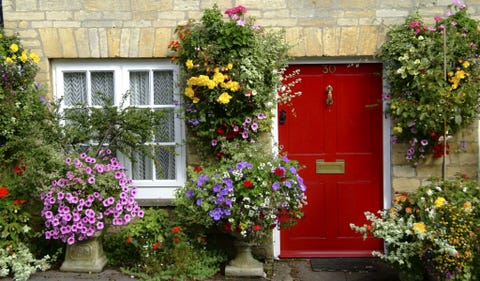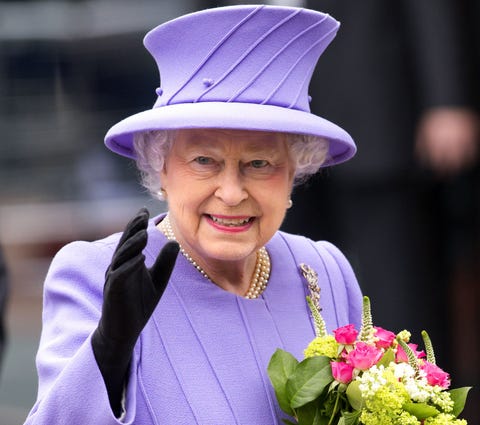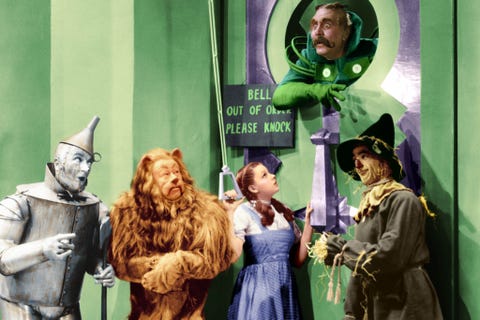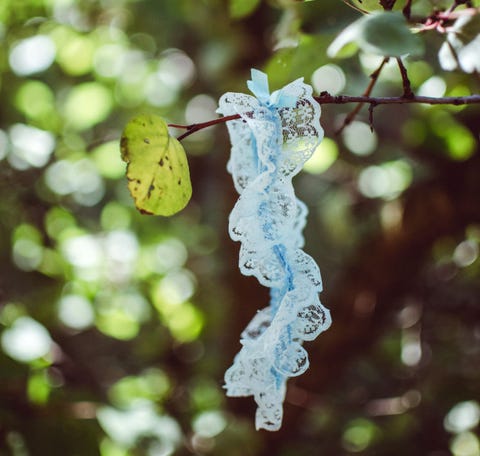What Does the Color Black Mean in Japan
For as long as colors have existed (so, you know, forever), humans have assigned meaning to them. We all know that a red rose at Valetine's Day symbolizes love, or that a white dove nods toward hope and purity. But some color choices made throughout history might be lost on you today. Here are some of the most fascinating hidden meanings:
1. Doors painted red aren't always just pretty.
Red is often considered a celebratory hue (just try to picture Christmas without it) and signifies good fortune in some cultures. Taking those concepts in stride, generations of people in Scotland painted their homes' front doors red when their mortgage was finally paid off. The door became a symbol of pride — and is a classically good design choice, if we do say so ourselves.

Getty Images
2. Yellow has a mysterious past.
The Italian translation of the word "yellow" is "giallo," but you might also hear an Italian utter the word as he's gushing about a new book he just read. A "giallo" is also the name given to Italian novels and films of the thriller and crime genre. The name harkens back to a series of mystery books published in the 1929 that had yellow jackets.
This content is imported from Instagram. You may be able to find the same content in another format, or you may be able to find more information, at their web site.
3. There's a pricey reason purple is the royal color.
In the old days (and by that we mean centuries ago), choosing to make something in a certain color wasn't as easy as going to the craft store and picking up some paint. Back in 1570 BC, fabric traders in the city of Tyre extracted the precious purple dye from small mollusks in the Mediterranean Sea. The tedious process made the cloth cost a pretty penny, and only the imperial class could afford it. Over time, the exclusivity factor stuck. Queen Elizabeth I even passed a law that said only the royal family could wear the hue.

Getty Images
4. The electric green Emerald City was an allegorical reference.
Sure, Dorothy's destination in The Wonderful Wizard of Oz felt impressive and theatrical because it was bright green, but author L. Frank Baum didn't pick the color because it looked cool. Green, of course, is the color of money, and Baum lived during the time in which America was debating adding more "greenbacks" (paper money) the financial system. Through this and other creative choices made throughout the novel, Quentin P.Taylor, professor of history at Rogers State College, argues that Oz is a "a deliberate work of political symbolism."

Getty Images
5. The "something blue" tradition has an ancient past.
Brides donning blue shoes, earrings, or flowers have an old English saying to thank for the idea. Blue symbolizes purity, love, and fidelity (though, we can't help but point out that it also conveniently rhymes with "new").The ditty actually ends with a fifth requirement — "a sixpence in your shoe" — but for whatever reason only the British still pay attention to it. (Though if you want to do the same, maybe try a couple of quarters — a sixpence equals about 50 cents).

Getty Images
6. For Dutch carrot farmers, the orange ones were a sign of honor.
Farmer's market newbies might be surprised to see purple or white carrots at the stands, since orange ones are really the only variety found in many grocery stores. 16th-century Dutch carrot farmers are to blame for that: They stopped producing carrots in other colors when William of Orange successfully led the Dutch revolution in the late 1500s.

Getty Images
7. The reason that the White House is white isn't a sexy one.
Some might assume the president's house is painted white in an effort to signify primacy or clarity, but that thinking is a bit too elegant. The White House is pale because it required whitewashing in the 18th century so the porous building material wouldn't freeze. Eventually, the nickname "white house" became the official name, and we're not sure we could imagine it any other way.

Getty Images
Lauren Piro Senior Web Editor Overseeing all things home for GoodHousekeeping.com and HouseBeautiful.com, Lauren swoons over midcentury design and employs tough-love approach to decluttering (just throw it away, ladies).
This content is created and maintained by a third party, and imported onto this page to help users provide their email addresses. You may be able to find more information about this and similar content at piano.io
What Does the Color Black Mean in Japan
Source: https://www.housebeautiful.com/room-decorating/colors/a4187/fun-facts-about-colors/